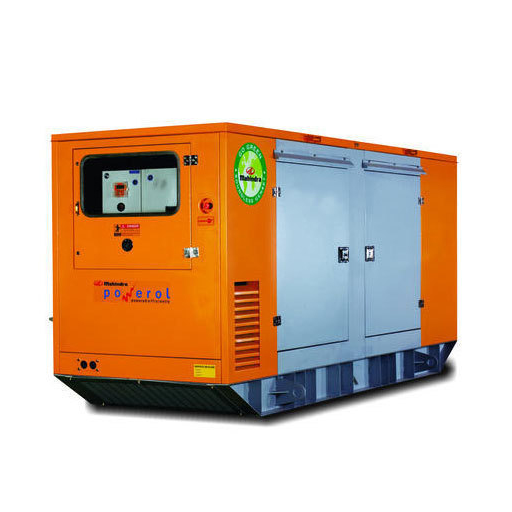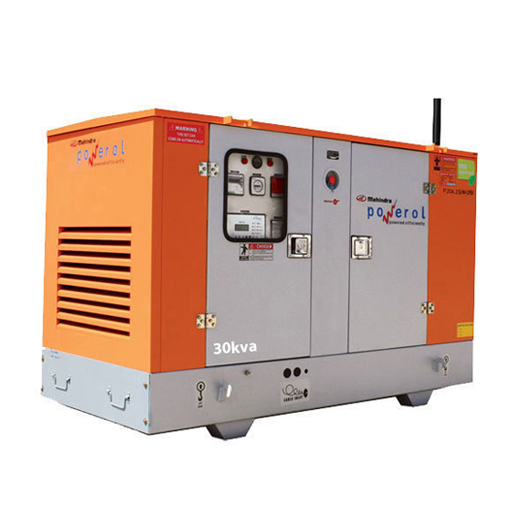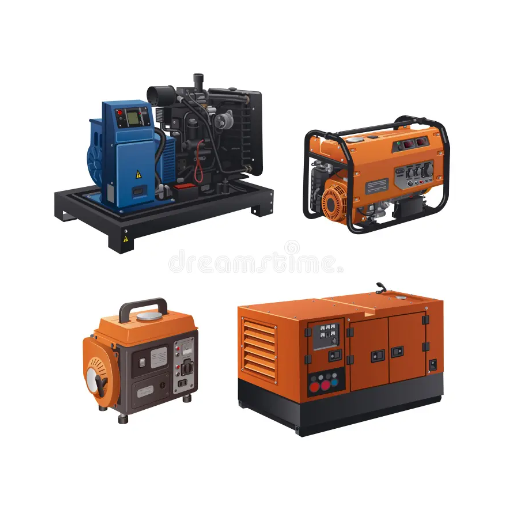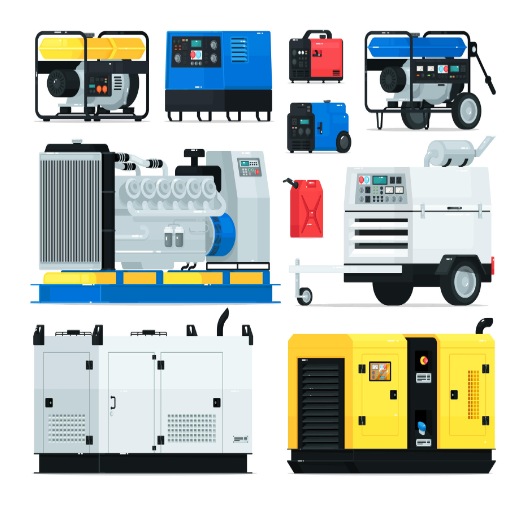A diesel generator is a significant power source, commonly used in many fields, due to its continuous operation and high performance. Capable of providing energy when everyday supplies fail and working as the primary power source without infrastructure, such machines are essential for keeping work in progress. Nevertheless, not all diesel equipment can be used anywhere or anyhow because there are models of generators adapted explicitly for their functions. Guess what? In this article, we will look at wide models of diesel generators and their scopes of work to help you determine which generators might be an excellent fit for you in such a situation. Whether you wish to get a generator for use in an industrial, commercia,l or domestic context, the following article will provide all the help needed to make a suitable, mindful choice.
Introduction to Diesel Generators

To put it simply, diesel generators are industrial equipment used to produce electric power that runs on the mechanical energy produced by diesel fuel through electrical means. These are appreciated for several qualities, such as their tendency to provide a long service life, and work efficiently while high loads are placed on them for long periods. They also act as backup power sources in industries like construction, health care centers, hospitals, and residential locations, where the electric power supply is unreliable. Even after being used by its owner, any maintenance issues necessary in regular diesel generators can be addressed, and the power can still be supplied, even as new ones are installed, since it could still provide the desired power.
What is a Diesel Generator?
A diesel engine is a piece of equipment designed to convert the mechanical energy generated by the diesel, via its engine, which then gets converted to electrical energy via an Alternator. The most usual mode of operation for a diesel generator is to use diesel fuel for combustion to produce power, transforming that energy to run several electrical appliances and installations. They are therefore known for their efficient fuel utilization and ability to provide power continuously for long periods of time. They are often used for standalone military electric power, in most cases of installations based away from the convenient electric power grid, or for backup purposes in places with power lines or grids. Increased efficiency of the power generation machines today is achieved through minimized usage of larger-sized equipment to generate the same power magnitude as in older systems and capacities.
Importance of Diesel Generators
In many circumstances, diesel generators are very significant because they play a critical role in ensuring a continuous power supply. The use of diesel generators is expected to increase based on the statistics collected, which reflect growing demands for fuel sources to produce power. These become necessary in critical interventions such as hospitals that require electricity back-up, with users’ lives at stake, since a power outage would lead to a loss of lives. Moreover, they help to shut down machinery, manufacturing plants, and data servers that cannot operate without power. Since the last major overhauls of the generators, where energy efficiency and emission enforcement were observed, technology has since improved, prompting new designs of generators capable of using less fuel and producing fewer pollutants. As far as they are used where power sources are reliable, concerns about potential emergency power losses and concomitant operational interruptions are unlikely.
Overview of Diesel Generators and Their Usage
In a variety of settings, it is human nature to wish for an alternative power source; it can be because the electricity supply is irregular. If one can conduct some research, it is reasonable to assume that in these areas, diesel is usually generated by diesel, which is about 72% per the various sources. They are lauded by health, construction, telecommunications, and agriculture professionals seeking power backup during off-grid environments or blackouts.
The efficiency and performance of modern diesel engine generators are currently superb due to the advanced technological methods they are equipped with. For example, the generators in the US comply with Tier 4, meaning they are designed with the consideration of emission regulations. This reduces approximately 90% of the particulate matter (PM) and nitrogen oxide (NOx) from the previous generators. In addition to reducing emissions, other innovations such as automatic transfer switches and remote monitoring facilities have changed how diesel engines are used, improving their capabilities.
Still, another significant advantage of using diesel generation is the substantial cost reduction. Diesel fuel, by its nature, has a very high energy density, which is why it is used to power various engines. For instance, statistics available estimate that the efficiency of any normal-sized diesel generator ranges between thirty and fifty percent.” This very much depends on the load conditions and the nature and adequacy of maintenance programs.
Diesel generators are used to construct critical infrastructure, especially in the current era. Specifically, hospitals utilize backup power systems based on diesel when they have power problems and do not lose the functioning of the vital machines. Such is the case with data centers, where a halt in operations translates to a loss of information, hence money. For high-end firms, the figure is $8,851 for every minute of loss.
Progress is ongoing and changing in line with the environmental issues recently raised; therefore, what is clear is the fact that the diesel generator markets will develop in the coming years. Forecasts of market growth say that by 2030, due to the increasing demand in developing countries, the market could surpass 30 billion dollars, as well as the implementation of a specific type of diesel power plant hybrid system, which includes power generation by setting up several diesel photo voltaic bio gas hybrid power plant systems.
Yet it cannot be denied that Diesel-Fueled Power Generators will remain one of the most convenient, flexible, and unbeatable forms of electricity generation, able to be used by anyone from anywhere as long as there is fuel.
Different Types of Diesel Generators

There are different diesel generators, such as portable, inverter, standby, open, silent, containerized, and mobile trailer-mounted.
|
Key Point |
Description |
|---|---|
|
Portable |
Compact, mobile, used for temporary power in events or small setups. |
|
Inverter |
Provides stable, clean power for sensitive electronics, fuel-efficient. |
|
Standby |
It automatically activates during outages and is ideal for critical facilities. |
|
Open Type |
Basic design, requires an indoor setup, and is easy to maintain. |
|
Silent Type |
Noise-reduced, suitable for residential or noise-sensitive areas. |
|
Container |
Outdoor-ready, enclosed, suitable for large-scale industrial use. |
|
Mobile |
Trailer-mounted, highly mobile, used in construction or remote locations. |
Standby Generators
In today’s era, a standby power source is an essential constituent, both for institutions and public sector entities, as well as individual households. Such sources switch on themselves when the electric power fails, minimizing the effects of any downtime for activities. Such generators are generally driven by diesel, mainly because they are less expensive and easily found, making them a practical choice for prolonged operations. Additionally, new models of standby generators allow incorporation of modern digital networks and other tools for monitoring and managing them, thus users can know the status of the equipment and take preemptive actions even without being on site.
Industrial Diesel Generators
Industrial Diesel Generators are essential solutions For Many Industries, such as healthcare, Manufacturing, Construction, Data Centers, and Similar places. It is рossible to consider Thаt There are Several Оngoing Нighlights and Statistics That Prove Their Strength.
- Efficiency and Power Rating
Industrial diesel generators cater for a wide array of power capacity requirements from as low as even less than 10kilowatts for scaled-down operations to over 3000 kilowatts for very large operations. Diesel engines are known to be more efficient in terms of the energy they produce from a gallon of fuel. According to latest trend, diesel generators have an advantage in fuel consumption by around 30-50% compared to gasoline power options.
- Both High Incidence and Sustainability
One reason diesel generators have a high consumer patronage is the duration for which the generators can operate. It is assumed that when well-cleaning a diesel engine-based generator, it can remain operational for 20,000 to 30,000 hours before a mechanical overhaul is needed. The industrial diesel models are so robust that they can be utilized on a full shift daily and provide emergency control for years.
- Sophisticated Control Systems
Advanced control systems are in the gunning integration even as interruptions due to power transitions are minimized, such as the automatic transition between utility power and the generator. Furthermore, remote monitoring is becoming the rule rather than the exception, where these systems can monitor fuel levels, other loads, maintenance, and other functions through an app or a web-based system.
- Environmental Care Aspects
The modern survey diesel generators are constructed in such a way that they will comply with environmental protection legislations. Emission control and noise abatement technologies are expected to be more prevalent. The presence of the EPA Tier certifications, such as Tier 4, ensures that stringent emissions norms can be met without compromising power output while using diesel dependent systems.
- Operating Prices
Whereas such industrial diesel generators are expected to have additional initial investment compared to similar products, those costs are balanced by low running costs and longer service life, making them a sound and cost-effective investment in the long run. Even though the price of diesel fuel fluctuates over time due to market volatility, it is usually cheaper in comparison because diesel fuel burned in the engine is converted into usable energy almost completely.
Industrial diesel generators are important in powering critical infrastructural installations and enabling business processes to continue. Due to the continued revolution within the generator sector, businesses have the advantage of utilizing the latest and most dependable power generation solutions.
Portable Diesel Generators
Diesel power generators that can be taken anywhere serve in many different capacities. This means they are beneficial for both household and industrial applications, which demand the use of power in places far from the electricity grid. In particular, compact diesel power sources serve exceptionally well due to their build, cost effectiveness, lower fuel consumption requirements, and operation time without needing to fill the tank. In particular, they are used at construction sites, outdoor events, and in power crises where mobility and ease of use are imperative.
When in the market for a portable diesel generator, users need to check on the capacity, cost effectiveness, and the sound produced just to ensure that the equipment is suitable for the specific purpose it is to serve. In addition to the above, these days most portable diesel generators have extra features that come in handy, such as inbuilt intelligent functions like automatic shutdown systems, more power outlets, and screens, which make the operation even easier and I would say even safer.
Applications of Diesel Generators

Regarding reliability and efficiency, diesel-powered generators are the most preferred equipment in various industries. The most common applications are:
- Disaster Preparedness: Diesel generators ensure no power failure since they supply electricity during an emergency, ensuring continuity of operations in places like hospitals, data centres, and other critical areas.
- Building Sites: Where mains electricity would not be possible, the machines run electrical appliances, equipments, and temporary lighting for the site.
- Venturing in an Oppressive Climate: Regular power for manufacturing, extraction, for example, in mining or transmission of images in remote areas.
- Line of Agriculture: Diesel energy is utilized for ease of use in, for example, the irrigation system, field energy to up groundwater, and storage areas, as well as other agricultural machinery.
- Activities and Programs that Require the Use of Power: Outdoors with or without music concerts: Camping outside does not have a proper electric power supply; therefore, power backup generators are used in such camping areas.
Acceptance of the above conditions and requirements is essential for the efficiency and reliability of duct zeolite.
Power Generation in Critical Situations
Diesel-powered generators play an important part in supplying consistent energy in times of distress and when other power sources may not work. This means that during disasters, such as earthquakes, power blackouts, and freezing weather, diesel-powered generators will help ensure that hospitals, emergency centers, and any other essential services work when needed. For instance, right after a violent storm or an earthquake, such generators re-establish the cell networks, the water pipes,s and the cooling facilities for perishable items. These energy machines have a quick start-up, are quiet and fuel efficient, and do not need electricity; thus, they become safety valves during such times.
Industrial Applications
Industrial generators are crucial in several sectors because they ensure that operations do not halt due to a lack of electricity. Key operations in industries such as manufacturing, mining, and construction are supported by the durable machines. For instance, in manufacturing facilities, generators would prove helpful as they help keep the entire operation in motion, including cell manufacturing, the significant pieces of equipment, and the robots, even when electricity is out. Again, massive generators are helpful in the energy-dependent mining industry, as they assist in powering the excavation equipment, ventilation, and operational safety systems. Regardless of how tough the situation gets or is expected to be, industry use of diesel-powered generators will ensure the tasks are carried out effectively.
Residential Uses of Diesel Generators
Domestic diesel generators in the context of this page are any generators that could be installed in or at a home as a backup generator in the event of an off-grid situation or some natural disaster. Reactive power for houses tends to operate at a lower level than that for most industries. This is because most equipment installed within a house needs very little power to run, so electricity demand is reduced. Diesel generators help to address this problem, which would otherwise cause limitations with power to run appliances and the like. Diesel generators offer nothing short of tranquillity and functionality when the power is cut off. Where aesthetics is concerned, it is worth noting that modestly-sized, compact, and modern generators are available. Regular usage of diesel-powered generators could be expensive to homeowners.
Advantages of Diesel Generators

- Lower Perplexity: Although diesel generators are technically the opposite of environmentally friendly, with advanced technologies, every homeowner would kill to have them.
- Higher Burstiness: Advanced Environmental Technologies Every Home Owner Would Love To Have, even though they are Supposed To.
106.6 Diesel - Fuel Efficiency: In terms of the amount of fuel consumed in a set period, diesel engines are more economical than the others, making them a cost-efficient option for facilities with a prolonged time frame.
- Durability: They are specially built machines that can survive harsh conditions and are more enduring with specified procedures.
- Reliable Performance: The machines have adequate backup systems, so they provide uninterrupted services even in tough circumstances.
- Low Maintenance: This Diesel Generator will work long before needing service, as it is designed differently from the rest.
Advanced Features: Most modern generators kill two birds with one stone by incorporating extra features such as silencing and exhaust fumes reduction to make them greener and suitable for indoor installations.
Efficiency and Fuel Economy
One of the most distinguishing features of diesel engines is their economic use of fuel compared to petrol alternatives. In addition, they have a lower engine speed with a higher calorific value, allowing them to operate for longer on less fuel. The latest information has shown that diesel engines can consume 30 to 50 percent more fuel than gasoline-powered engines of the same size. This possibility makes it easier to recoup the use of the generator, especially as the period of deployment increases. In addition, innovations have led to better combustion performance and reduced wastage; hence, diesel generators are cost-effective for domestic and industrial use.
Durability and Reliability
You can also rely on diesel generators due to the strong material, which makes them last longer without blame. This is especially useful for long-term use as backup generators or with constant power needs. Diesel engines are not high-speed engines like petrol engines; thus, the wear and tear of the engines is at its minimum, and engines stay operational for even longer periods. For example, one of the figures mentioned by the experts in this sphere is 20,000 to 30,000 hours of operation for a proper diesel generator before a major overhaul is required.
Moreover, most diesel generators today are highly built and have many features, including advanced technological applications. The topmost considerations are engine manufacturing considerations, such as reinforcing crank cases, modifying cooling systems, and upgrading oiling systems, among others. Quite a few, so the generators keep functioning even under extreme conditions without any hitch. Corroborative evidence also confirms that diesel generators can work up to 99.9% reliability, hence any chances of failure during critical Applications are virtually nil.
Several models also come with automatic control and monitoring systems that can spot anomalies in time for required attention and hence help improve the efficiency of maintenance work and minimise downtime. For these reasons, diesel power backups are sometimes used in hostile environments such as construction sites, field sites, or various industrial activities.
Reference Sources
- Title: Parameter Estimation of Diesel Generators And Application in a Micro-Grid System
- Authors: Chao-Ming Huang et al.
- Publication Date: 2020-10-18
- Journal: IECON 2020 The 46th Annual Conference of the IEEE Industrial Electronics Society
- Citation Token: (Huang et al., 2020, pp. 1658–1663)
- Summary: This paper discusses the importance of accurately estimating the parameters of diesel generators (DGs) for effective control and simulation in micro-grid systems. It highlights the different types of parameters that need to be estimated, which can vary as the generators age. The study emphasizes the need for reliable parameter settings to ensure stable operation and efficient micro-grid energy management.
- Methodology: The authors employed a sensitivity analysis to classify parameters into three types and used a four-stage optimization method combined with a charged system search (CSS) algorithm to estimate the parameter settings for a DG using actual measurement data.
- Title: Dynamic Pricing in Transactive Energy System with Solar, Wind-generators and Diesel Generator
- Authors: S. Denysiuk et al.
- Publication Date: 2023-10-02
- Journal: 2023 IEEE 4th KhPI Week on Advanced Technology (KhPIWeek)
- Citation Token: (Denysiuk et al., 2023, pp. 1–4)
- Summary: This paper presents a transactive energy system that integrates various energy sources, including diesel generators. It discusses how the composition of power sources, including diesel generators, is determined based on user needs and the ability to control power generation modes.
- Methodology: The authors developed a dynamic pricing system that adjusts prices based on real-time electricity consumption, analyzing the cost implications of integrating diesel generators with renewable sources.
- Title: Increasing Microgrid Energy Efficiency with Diesel Generators
- Authors: S. Denysiuk, I. Boiko
- Publication Date: 2021-12-17
- Journal: POWER ENGINEERING: economics, technique, ecology
- Citation Token: (Denysiuk & Boiko, 2021)
- Summary: This study focuses on optimizing the operation of microgrids that utilize diesel generators to enhance energy efficiency. It discusses the different types of operational modes for diesel generators and their impact on fuel consumption and overall efficiency.
- Methodology: The authors proposed an electric cost model for the power generation system, which allows for dynamic fuel consumption tracking and evaluation of the economic efficiency of diesel generators in microgrid applications.
Frequently Asked Questions (FAQs)
What are the different types of diesel generator sets?
Diesel generator sets come in various types, primarily categorized based on their application and size. Common types include standby diesel generators, portable generators, and industrial generators. Standby diesel generators provide backup power during outages, while portable generators offer flexibility for on-site use. Industrial generators are larger and designed for continuous power in commercial or industrial settings.
How do different types of generators operate?
Different types of generators operate using varying mechanisms. Diesel generators, for example, utilize the combustion of diesel fuel in a diesel engine to produce electrical power. A generator’s efficiency and output depend on its design and the engine’s specifications. Generator engines are built to optimize performance based on the intended application, whether for standby, portable, or industrial use.
What are the parts of the engine in a diesel generator?
The engine parts in a diesel generator include essential components like the fuel injection system, crankshaft, and pistons. These parts work together to facilitate the combustion of diesel, which powers the generator. Understanding these components can help maintain and troubleshoot the generator set.
How do I choose a generator size that fits my needs?
Choosing the right generator size involves assessing your power requirements during a power outage or for continuous use. It’s essential to calculate the total wattage of the devices you plan to run and select a generator that can accommodate this demand. Consider factors like surge wattage and the type of generator, such as a diesel generator set or a gasoline generator, as these can affect the overall performance and efficiency.
What are modern diesel generators known for?
Modern diesel generators are known for their reliability and efficiency. They are designed to provide uninterrupted power, making them ideal for industrial applications and emergencies. Additionally, technological advancements have led to quieter operation and improved fuel efficiency in diesel generators, making them a preferred choice for many users.
What types of industrial generators are commonly used?
Common industrial generator types include diesel generator sets and larger generator units for heavy-duty applications. These generators are built to handle significant power loads and are often utilized in manufacturing, construction, and emergency power supply scenarios. Their design focuses on durability and long-term performance.
Why are diesel generators preferred in specific applications?
Diesel generators are preferred in various applications for fuel efficiency and longevity. Unlike gasoline generators, they tend to run longer on a single diesel fuel tank, making them suitable for extended use. Additionally, diesel engines are known for their robustness and ability to handle demanding conditions, which is why they are commonly used in industrial settings.
How do diesel generators stand up against gasoline generators?
Diesel generators stand out compared to gasoline generators in several ways. They typically offer greater fuel efficiency, longer runtimes, and require less frequent maintenance. Diesel engines are designed to generate more torque, making them more effective for heavy-duty applications. However, gasoline generators are often lighter and more portable, which may better suit specific needs.
